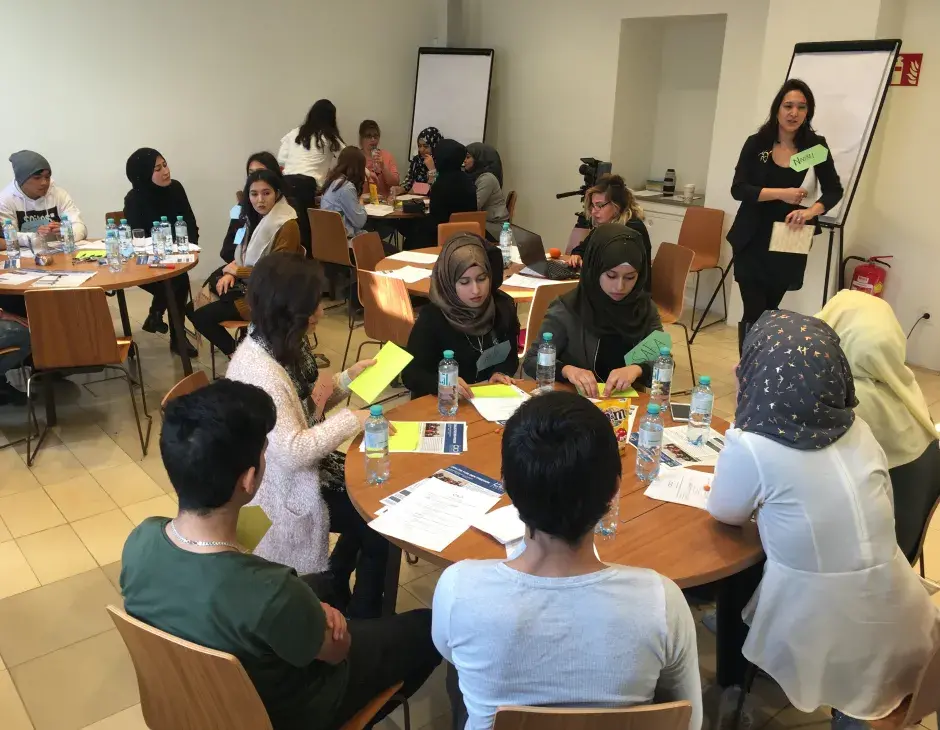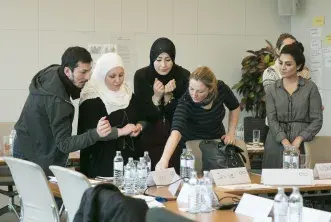Youth seeking refuge convene at KAICIID to share their perspectives on integration
2 December 2017, Vienna: An appreciation of diversity and acceptance of difference are fundamental to social cohesion. Integrating young people who have been displaced is of particular importance in sustaining social cohesion. Young people have tremendous potential and capacity to adapt, but they also face significant challenges and disadvantages.
KAICIID set out to better understand how young people seeking refuge in Austria see themselves, how they see the Other, and how they see their future – all in the context of intercultural and interreligious dialogue.
Over 15 young people between the ages of 16-30 gathered for a one day workshop, which was held in German as part of the effort to support their integration into their host community.
Participants explored how their identities and their perception of others have changed since arriving in Europe. They shared their challenges and hopes, and what they wish that Europeans and European institutions would learn to know about them.
Many young people found that arriving was just the beginning. Life in Europe offers a host of new educational, social, cultural opportunities and new perspectives on others. At the same time, suddenly being stereotyped as a foreigner or a refugee can be difficult.
Mohammed, 16, from Afghanistan said: “I wish that European institutions knew that people are just people… the color of our skin, our religion, or our cultural background does not matter … we came here because we fled a war. We are not criminals… there are bad people everywhere, but that does not mean that all refugees should be feared. We just want to live like everybody else.”
The participants discussed cultural differences, including women’s and girls’ issues. Some felt excluded by their peers because of their religion or ethnicity, while others had more positive experiences.
Hoda, 19, from Iraq said: “I am very happy here, in Austria. I found a new form of independence that I did not have when I was living in Iraq. I feel free and safe here. People treat me well at school; they don’t care that I wear a headscarf.”
The majority agreed that language was their biggest challenge, but most of them have been able to overcome that hurdle in as little as two years.
Ahmad, 16, from Syria said: “I arrived when I was 14 years old. My German is good because I lived with an Austrian family for some time when I arrived. I learned to speak German from them. I am grateful for that.”
Migrant integration is a topic of intense interest throughout the continent, and many European voters are concerned about the implications that migration and asylum policies have for social cohesion and development.
The main aim of the meeting was to gather youth perspectives to be delivered during a two-day workshop that will take place at KAICIID and the House of the European Union from 12 to 13 December 2017. The workshop will gather policy makers, as well as faith based actors and welfare organizations for an opportunity to exchange ideas, develop recommendations, identify potential partnerships and explore opportunities to establish a platform for fruitful collaboration in the field.



